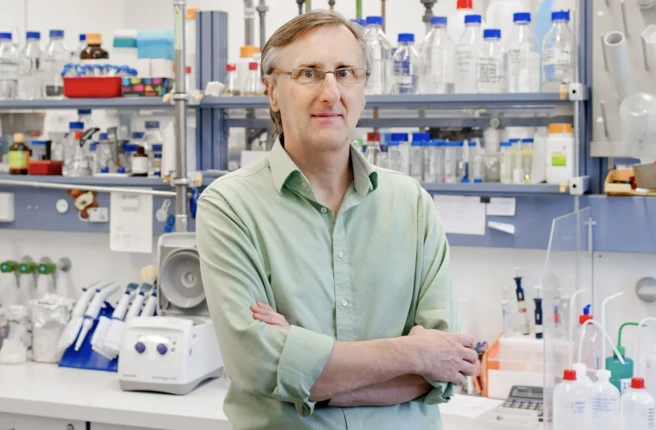Alzheimer's, Parkinson's, and certain types of cancer – many serious diseases arise when misfolded proteins cause malfunctions in the body. An international research team now wants to decipher the role of “helper proteins” called chaperones, which are responsible for quality control of newly produced proteins in the body. To this end, the CHAPEROME project is receiving funding of almost €11 million through a Synergy Grant from the European Research Council (ERC).
Scientists at TUM have so far been able to secure a total of 255 ERC grants. These now include six Synergy Grants from the highest funding category. The total amount for CHAPEROME is almost €11 million, of which over €3.2 million is allocated for the Technical University of Munich (TUM). Synergy Grants are always awarded to teams of researchers with equal status. The CHAPEROME team consists of Prof. Marina Rodnina from the Max Planck Institute for Multidisciplinary Sciences in Göttingen, Prof. Johannes Buchner from the TUM, and Prof. Judith Frydman from the Stanford University in the USA.
The CHAPEROME research project
Proteins are among the central building blocks of life. Without them, cells and organs could not function. Proteins are long chains of amino acids that are assembled in every cell by large molecular machines called ribosomes. Depending on the amino acid sequence, these chains fold into a specific three-dimensional structure. This structure determines whether a protein can perform its desired function.
Misfolded proteins cause a variety of serious neurodegenerative diseases, prion diseases such as Creutzfeldt-Jakob disease or BSE, but also metabolic and hereditary diseases such as cystic fibrosis and phenylketonuria. Some types of cancer also develop or worsen when proteins that regulate cell growth are misfolded.
Chaperones are active in cells to prevent such malfunctions. Among other things, they support the correct folding of proteins and can repair incorrectly folded molecules. New findings by the CHAPEROME team suggest that chaperones also regulate how ribosomes produce proteins. Over the next six years, the funded team aims to work together to find out how this works at the molecular level.
In addition to discovering fundamental mechanisms, e.g., in the formation of nerve cells, the project could also provide new approaches for treating diseases caused by protein folding disorders in the long term.
Further information and links
- The project name CHAPEROME draws a parallel to terms such as proteome, which refers to the entirety of proteins.
- The name “chaperone” originally comes from French and means “companion” or “escort.”
- European Research Council (ERC)
Contact to this article
Prof. Johannes Buchner
Technical University of Munich
Chair in Biotechnology
TUM School of Natural Sciences
johannes.buchner@tum.de
Technical University of Munich
Corporate Communications Center
- Ulrich Meyer
- presse@tum.de
- Teamwebsite
Original article: https://www.tum.de/en/news-and-events/all-news/press-releases/details/erc-synergy-grant-fuer-prof-johannes-buchner
